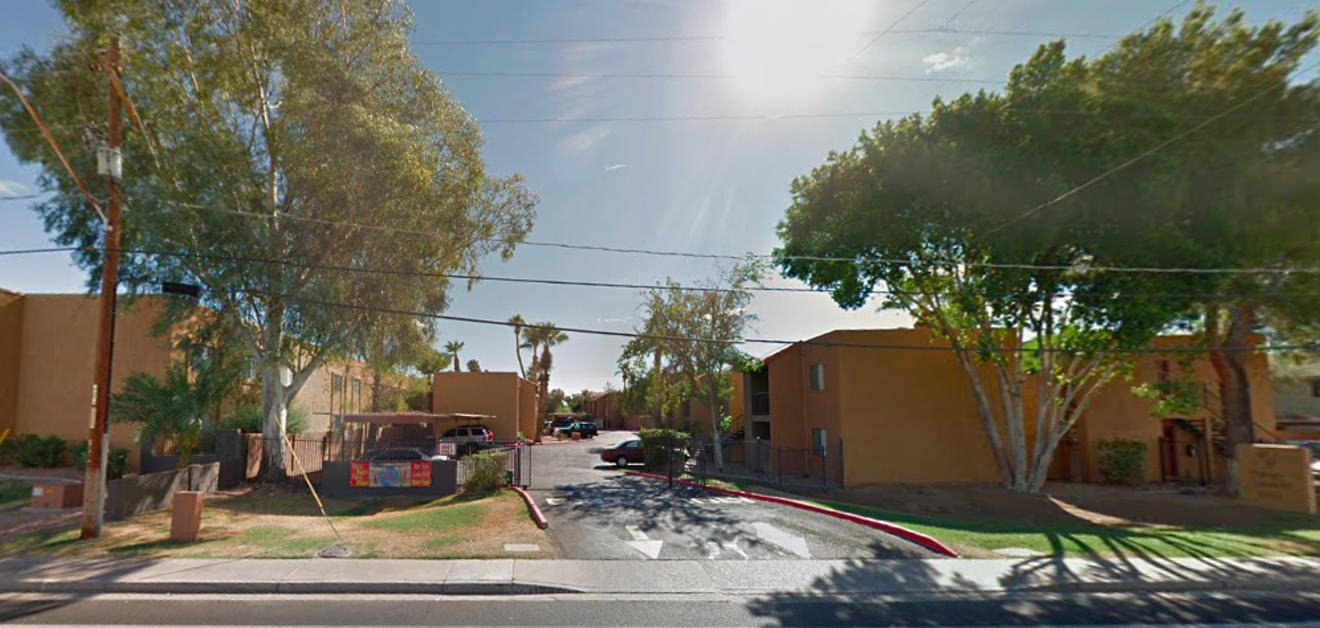One morning in 2012, five officers from the Phoenix Police Department showed up at an apartment complex off 48th Street by the Hohokam Expressway. The officers were searching for an individual with an outstanding warrant who they’d heard often sold drugs in the area.
Outside the complex, they came across four black men who didn’t match the description on the warrant. One was Anthony Benard Primous, who had his 1-year-old child on his lap.
The officers patted down Primous and, in the process, found a baggie containing two grams of pot in his pocket. He was charged with misdemeanor marijuana possession.
Later on, the public defender assigned to Primous’ case tried to get the charges thrown out, arguing that the officers had no legal grounds to search him. After all, he hadn’t been doing anything illegal when the police showed up, and there was no evidence that he was armed and dangerous.
But Judge Pamela Gates concluded the pat-down was necessary in order to ensure the officers’ safety. As evidence, she cited “the dangerousness of the area” in addition to the fact that one of the other men had run away when the officers approached.
We all know that racial profiling is illegal. But can you profile people based on their neighborhood?
The Arizona Supreme Court ruled today that the answer to that question is a definitive no. Primous' conviction will be overturned, since it was the result of an illegal search.
"The fact that the encounter occurred in a high-crime neighborhood was insufficient to justify the search of an individual who gave no indication that he was involved in a crime or posed an imminent threat to the officers," the court's opinion states.
The decision is good news for the ACLU of Arizona, which had joined Arizona Attorneys for Criminal Justice in filing an amicus brief in support of Primous' attempt to get his conviction overturned.
"We’re very happy," Kathy Brody, the legal director for the ACLU of Arizona, tells Phoenix New Times. "I think the main takeaway that I’m getting from looking at the decision is that the court clearly rejects the idea of guilt by association. Police really have to have a particularized reason to think that someone is engaged in criminal activity, or armed and dangerous, before they search them."
The ACLU and AACJ's brief pointed out that “high-crime area” is often code for a neighborhood where not many white people live. That was certainly true in Primous’ case: Census data shows that more than three quarters of the residents in that part of town are racial or ethnic minorities.
After he was found guilty initially, Primous appealed the decision. The Arizona Court of Appeals ruled that neighborhood’s reputation for violent crime meant that officers were justified in their decision to search him.
The ACLU and AACJ disagreed. “In this context, this means only one thing: It is a license to discriminate against racial minorities and others who live in high-crime neighborhoods,” they wrote in their brief.
Furthermore, they noted, people who live in “bad” neighborhoods have the same rights as everyone else.
“Law enforcement should not be emboldened to profile citizens for unjustified stops and searches based on their race, or the neighborhoods where they live, work, or visit,” the brief argues.
Five years after Primous' initial arrest, the court has finally come to the same conclusion.
[
{
"name": "Air - MediumRectangle - Inline Content - Mobile Display Size",
"component": "18478561",
"insertPoint": "2",
"requiredCountToDisplay": "2"
},{
"name": "Editor Picks",
"component": "16759093",
"insertPoint": "4",
"requiredCountToDisplay": "1"
},{
"name": "Inline Links",
"component": "17980324",
"insertPoint": "8th",
"startingPoint": 8,
"requiredCountToDisplay": "7",
"maxInsertions": 25
},{
"name": "Air - MediumRectangle - Combo - Inline Content",
"component": "16759092",
"insertPoint": "8th",
"startingPoint": 8,
"requiredCountToDisplay": "7",
"maxInsertions": 25
},{
"name": "Inline Links",
"component": "17980324",
"insertPoint": "8th",
"startingPoint": 12,
"requiredCountToDisplay": "11",
"maxInsertions": 24
},{
"name": "Air - Leaderboard Tower - Combo - Inline Content",
"component": "16759094",
"insertPoint": "8th",
"startingPoint": 12,
"requiredCountToDisplay": "11",
"maxInsertions": 24
}
]












